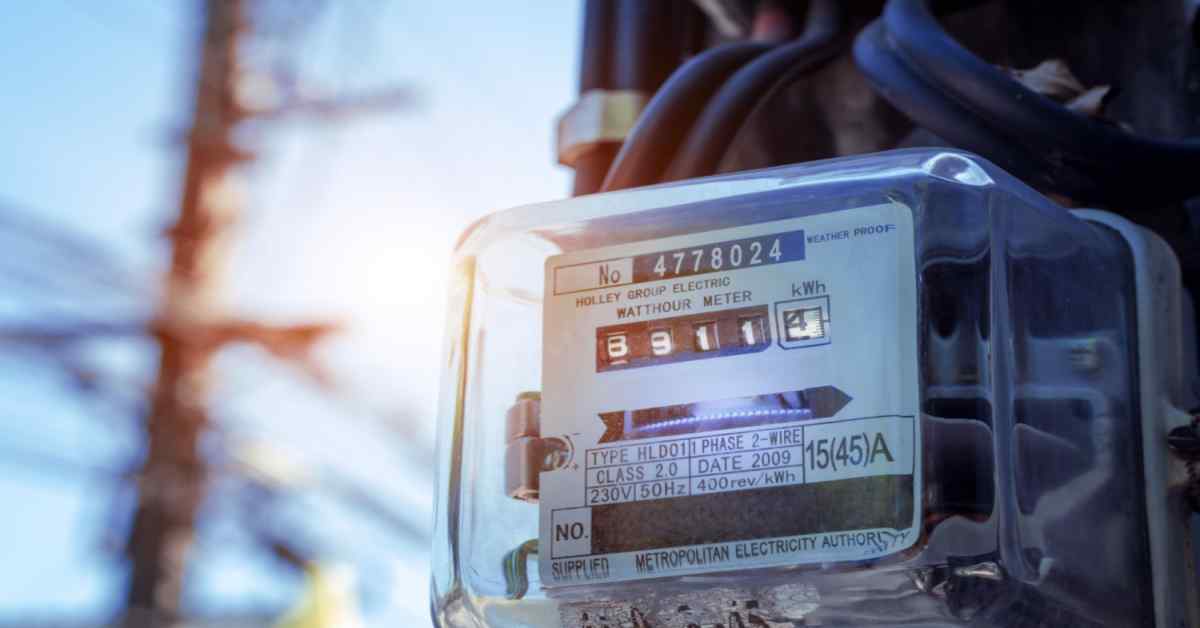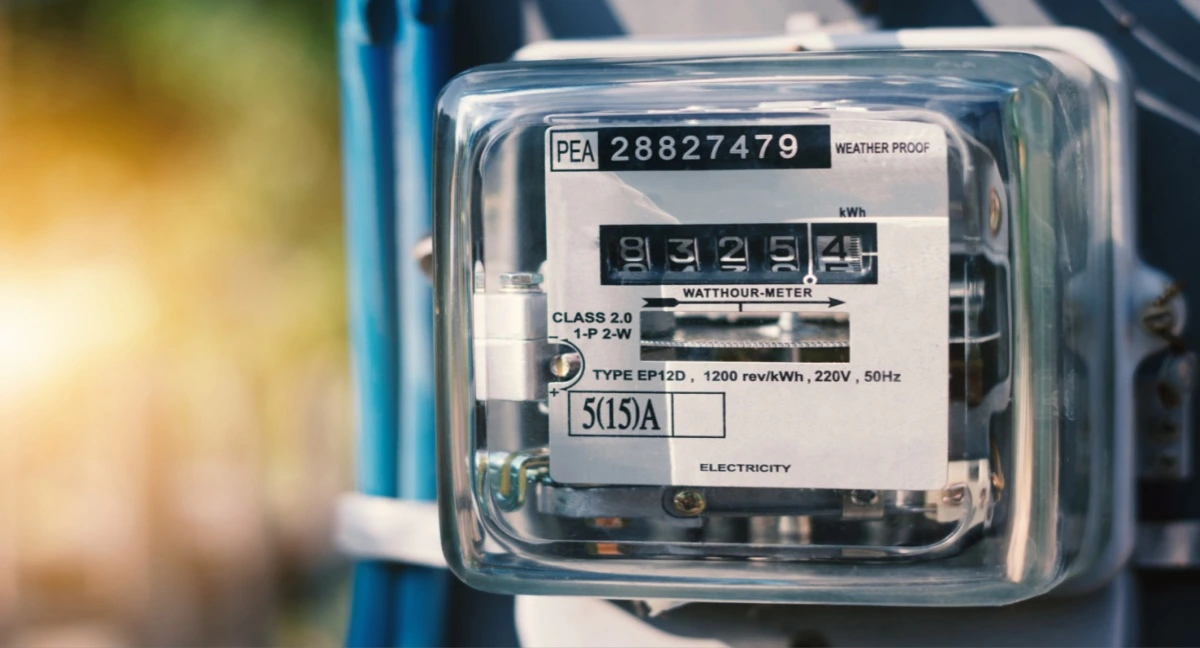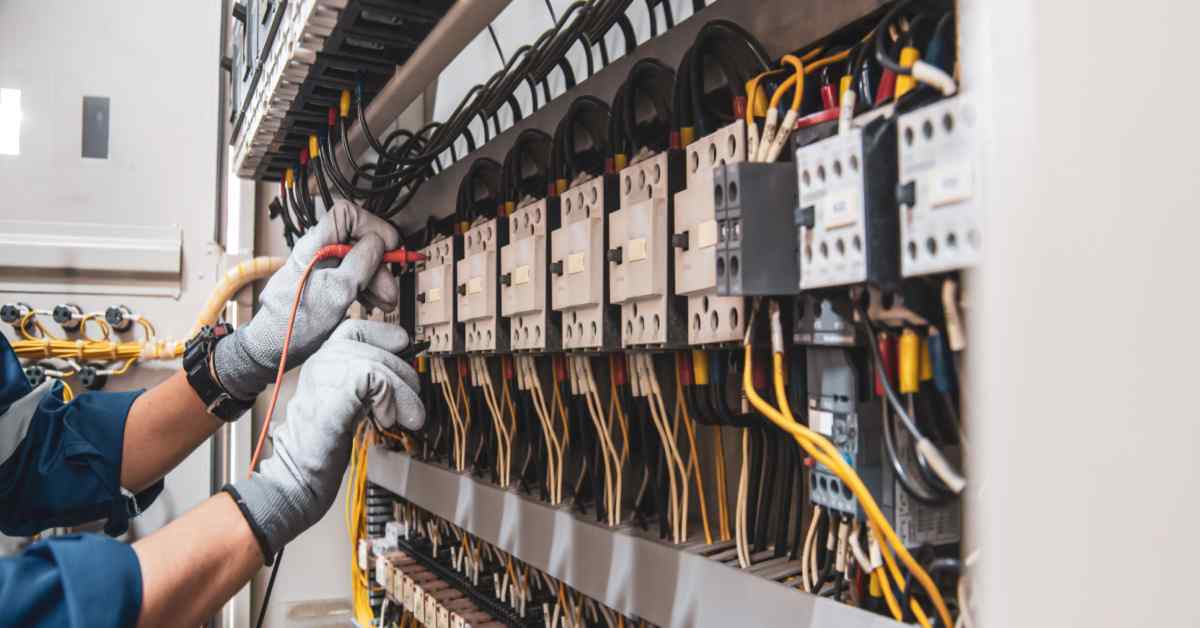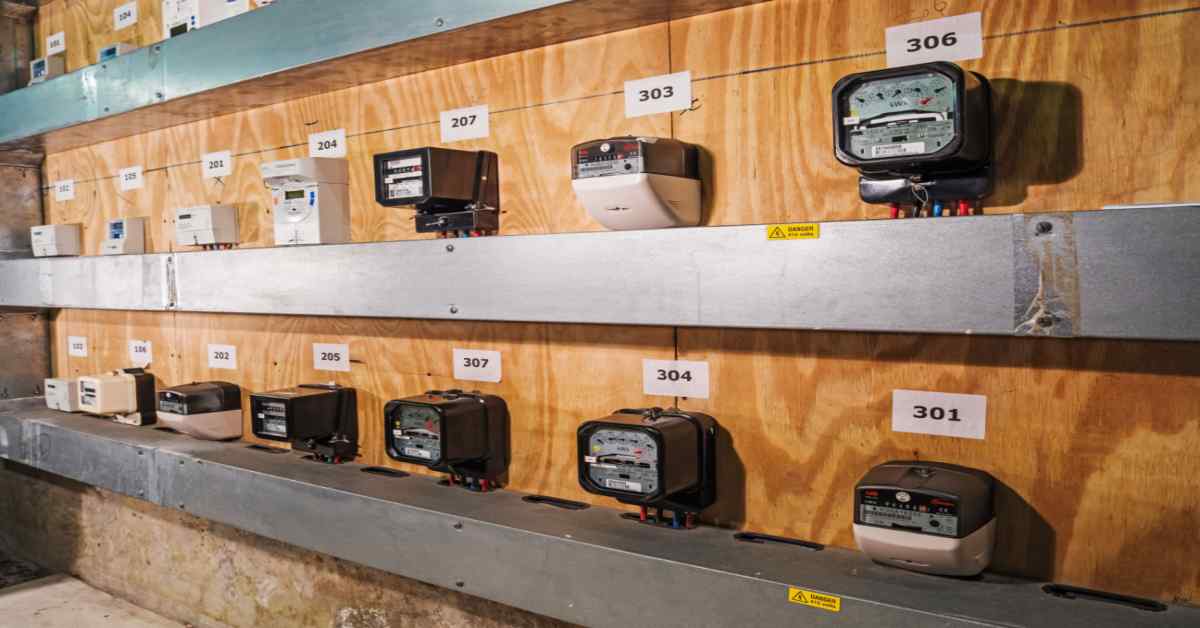Table of Contents
Quality Service Guarantee Or Painting Free

Get a rental agreement with doorstep delivery

Find the BEST deals and get unbelievable DISCOUNTS directly from builders!

5-Star rated painters, premium paints and services at the BEST PRICES!
Loved what you read? Share it with others!


Submit the Form to Unlock the Best Deals Today
Check Your Eligibility Instantly

Experience The NoBrokerHood Difference!
Set up a demo for the entire community

Tenant Super Relax Plan
Enjoy Hassle-Free Renting
 Full RM + FRM support
Full RM + FRM support Instant alerts & premium filters
Instant alerts & premium filters Rent negotiation & relocation help
Rent negotiation & relocation helpGruha Jyothi Scheme: Meaning, Application, Eligibility and Documents Required in 2025
Table of Contents
The Gruha Jyothi Scheme helps people in Karnataka save money on electricity. It offers free electricity for up to 200 units each month. This program started on August 1, 2023, to make life easier for families. To qualify, you need to live in Karnataka and have a residential electricity connection. The article explains who can apply, what documents are needed, and how to fill out the application online or offline. It also discusses how this scheme can improve your life by lowering your electricity bills. Learn how to benefit from this great initiative!
Gruha Jyothi Scheme - A Quick Info
The Karnataka Gruha Jyothi Scheme is a flagship initiative launched by the Government of Karnataka to provide financial relief to residential electricity consumers. The primary aim is to reduce the burden of electricity costs on low- and middle-income families.
| Information | Details |
| Scheme | Gruha Jyothi |
| Government | Karnataka State Government |
| Objective | Free electricity up to 200 units to every residential household in Karnataka |
| Implemented date | August 1st 2023 |
| Mode of application | Both online and offline |
| Documents | Aadhar card, electricity bill, consumer ID |
| Portal link | https://sevasindhugs.karnataka.gov.in/ |
| Scheme status check link | https://sevasindhu.karnataka.gov.in/StatucTrack/Track_Status |
What is the Gruha Jyothi Scheme in Karnataka?
The Gruha Jyothi Scheme, introduced by the Karnataka Government, is an initiative aimed at providing financial relief to the state's residents. Under this scheme, the government provides free electricity use for up to 200 units per month. The scheme officially commenced on 1 August 2023, considering the electricity consumed in July as the initial assessment month.
Quality Service Guarantee Or Painting Free

Get a rental agreement with doorstep delivery

Find the BEST deals and get unbelievable DISCOUNTS directly from builders!

5-Star rated painters, premium paints and services at the BEST PRICES!
The Gruha Jyothi Scheme Karnataka is a transformative initiative designed to enhance the quality of life for Karnataka's residents by offering up to 100 units of complimentary electricity. This strategic move aims to alleviate the financial strain associated with electricity costs, paving the way for households to embrace a brighter future without the burden of hefty power bills.
At its core, the scheme is committed to fostering an economically supportive atmosphere, enabling individuals to enjoy a higher standard of living. Through substantial reductions in electricity expenses, the program endeavours to make a positive difference in the lives of the people in Karnataka, underscoring the government's commitment to their well-being and sustainable development.
Recommended Reading

January 20, 2025
160666+ views

Gruha Jyothi Scheme: Meaning, Application, Eligibility and Documents Required in 2025
May 21, 2025
34809+ views

New BESCOM Connection: Step-by-Step Process 2025
January 31, 2025
25095+ views

Types of Electric Meters: Find the Best Option for Your Home or Business
January 31, 2025
24302+ views

Jhatpat Portal: Quick Guide to Applying for UPPCL Connections
January 31, 2025
21177+ views
Latest Karnataka Gruha Jyothi Scheme Details 2025
The Karnataka Cabinet has revamped the Gruha Jyothi Scheme, now offering an additional 10 units of electricity to households on top of their average consumption, moving away from the previous model of a 10% increase. This change aims to better support underprivileged families, ensuring a more equitable distribution of power. Specifically, households consuming less than 90 units monthly will benefit directly from this adjustment. However, it might not be as advantageous for those whose average consumption exceeds 100 units.
In a related development, the Cabinet approved the formation of the Karnataka Motor Transport and Other Allied Workers’ Social Security and Welfare Board to fund accident-related expenses for private transport sector employees. Additionally, amendments to the vehicle scrapping policy will encourage the adoption of electric vehicles (EVs) by offering financial incentives.
For instance, the purchase of EVs following the scrapping of old vehicles will now come with subsidies, promoting a shift towards more sustainable transportation options among the public, especially in the construction and agriculture sectors. Registration for the scheme continues to be facilitated through the Seva Sindhu portal, which has witnessed strong participation, with over 1.5 crore families registered as of February 2025
Benefits of the Gruha Jyothi Scheme
The Gruha Jyothi Scheme in Karnataka is a pioneering initiative to provide financial relief to households through free electricity while promoting energy efficiency and reducing the state's carbon footprint. Here’s how this scheme is beneficial to the residents of Karnataka:
- Free electricity up to 100 units per month: Under the Gruha Jyothi Scheme, all residential consumers in Karnataka are eligible to receive up to 100 units of free electricity per month. This can save households significant money on their electricity bills, especially those who consume less than 100 units per month.
- Increased energy efficiency: The Gruha Jyothi Scheme can encourage households to adopt more energy-efficient practices, such as using LED bulbs and turning off appliances when not in use. This can help to reduce the overall demand for electricity and save the state money on electricity generation and transmission.
- Reduced carbon footprint: The Gruha Jyothi Scheme can help to reduce Karnataka's carbon footprint by encouraging households to use less electricity. This is important for combating climate change.
Common Issues and Solutions for Gruha Jyothi Scheme
Karnataka Gruha Jyothi's scheme, which provides free electricity up to 200 units per month, has faced several issues. Here are the common problems encountered and their solutions.
1. Duplicate Account ID Error
- Issue: During application, users receive an error stating "Account ID is duplicated."
- Cause: This occurs when the same electricity account is already linked to another Aadhaar number.
- Solution: Applicants should ensure that each electricity account is linked to only one Aadhaar number. If the issue persists, contact the local electricity supply company (ESCOM) for assistance.
2. Delayed Activation of Benefits
- Issue: Applicants notice that the scheme benefits are not reflected in their electricity bills even after applying..
- Cause: Processing delays can occur due to high application volumes or verification processes.
- Solution: Applicants can track their application status on the Seva Sindhu portal. If delays persist, contact the respective ESCOM or visit the nearest service centre..
3. Issues After Shifting Residences
- Issue: Applicants who have moved to a new residence face difficulties in transferring their scheme benefits.
- Cause: The scheme benefits are linked to the specific electricity account (RR number) and Aadhaar number.
- Solution: Use the Gruha Jyothi Delink facility on the Seva Sindhu portal to unlink the old and new RR numbers. This ensures continuity of benefits at the new residence.
4. Fake Registration Portals
- Issue: Applicants fall victim to fraudulent websites or apps claiming to facilitate scheme registration.
- Cause: Cybercriminals create fake platforms to collect personal information.
- Solution: Always register through the official Seva Sindhu portal. Be cautious of unsolicited messages or links and verify the authenticity of any platform before providing personal details.
5. Uncertainty About Aadhaar Linking
- Issue: Applicants are unsure which Aadhaar number is linked to a particular electricity account.
- Cause: Multiple residents or previous occupants may have linked their Aadhaar to the same account.
Solution: Use the Acknowledgement Reprint page on the Seva Sindhu portal to check the Aadhaar number linked to the electricity account. This helps manage or update the linkage as needed.
Gruha Jyothi Scheme Eligibility
The Gruha Jyothi scheme provides electricity benefits in Karnataka. With specific Bangalore Gruha Jyothi Scheme eligibility criteria for applicants outlined below, you can enjoy the benefits:
- The applicant must be a resident of Karnataka State to apply for this scheme.
- The scheme is only applicable to domestic/residential household connections.
- A house owner is eligible for the scheme's benefits for only one electric meter connection.
- Tenants are eligible to receive benefits under the scheme even if the electric meter is registered in the house owner's name.
Documents Required: Your Checklist for Gruha Jyothi Application
To apply for the Karnataka government's Gruha Jyothi scheme, ensure you have the following documents ready for a smooth application process:
- Aadhaar Card and Voter ID: To verify the identity and residence of the applicant.
- Customer/ Account ID: A unique identifier found on electricity bills, necessary for linking to the scheme.
- Tenancy Document: Proof of rental occupancy for tenants, showing eligibility to claim benefits.
How do you apply for the Gruha Jyothi Scheme?
Gruha Jyothi application online is a streamlined process. Follow these steps to secure electricity benefits for your household in Karnataka.
- Step 1: Visit the official website of Seva Sindhu Portal
- Step 2: Click on the ‘Gruha Jyothi’ icon
- Step 3: Your browser will be directed to a new tab. Here, fill in the applicant details like name, address, Aadhar number, electricity account ID and mobile number.
- Step 4: Enter your Aadhaar number and authenticate it using the OTP sent to your registered mobile number.
- Step 5: Tick the declaration checkbox, enter the Captcha Code, and click the Submit button.
- Step 6: A Gruha Jyothi acknowledgement will be displayed on the screen. Download it for future reference.
Offline Application Procedure for the Gruha Jyothi Scheme
Individuals interested in registering for the Gruha Jyothi Scheme offline can visit the Bangalore One, Karnataka One, or Grama One Centres. These centres are designed to facilitate various government-related services, including registering state-sponsored schemes like Gruha Jyothi.
Track Your Gruha Jyothi Application Status
Follow a simple tracking process to stay updated on your Gruha Jyothi scheme application status. This ensures transparency and ease for applicants.
- Step 1: Visit the official website of Seva Sindhu Portal
- Step 2: On the home page, click on Know the Status of Your Application.
- Step 3: Enter application reference details like the ESCOM name and account ID.
- Step 4: Enter the captcha code displayed and click on “Check Status”.
- Step 5: The system will display the current status of your application.
How is the Zero Bill Calculated Under the Gruha Jyothi Scheme?
The Gruha Jyothi Scheme is designed to offer financial relief to households by reducing their electricity bills, specifically targeting those with low to moderate power consumption. Here is a simplified explanation of how the zero bill is calculated:
1. Calculation of Average Consumption:
- The government looks at your electricity usage from April of the previous year to March of the current year.
- They calculate the average by adding all the units you consumed during this period and then dividing by 12 (for 12 months).
- They add an extra 10% to this average, which acts as a buffer or allowance for a slight increase in consumption.
2. Determining Free Units:
If your average monthly consumption (including the 10% increase) is less than 100 units, you qualify for the scheme.
3. Monthly Usage Check:
- Each month, your electricity usage is compared to your average (including the extra 10%).
- If you use less than or equal to your average, you will receive a bill for zero pounds; you will pay nothing.
- If you use more than your average but less than 100 units, you pay for the extra units above your average.
- If your usage exceeds 100 units a month, the zero bill scheme doesn't apply, and you pay for all the electricity you use.
Pay Your Electricity Bills Through the NoBroker Pay App
The Gruha Jyothi Scheme is a great way to save money on your electricity bills. And with NoBroker Pay, it's even easier to streamline your payments. NoBroker Pay is a safe and convenient way to pay your bills online, with just a few clicks. You can also set up recurring payments, so you never have to worry about missing a payment again.
Frequently Asked Questions
Ans: Under the updated 2024 Gruha Jyothi Scheme, if you use more than 100 units of electricity in a month, you only pay for the usage beyond 100 units. The first 100 units are free.
Ans: To qualify for the scheme, you need to transfer the electricity account into your name. This can be done at any Jana Snehi Vidyuth service counter located in the sub-divisional offices.
Ans: Even if your Aadhar is registered outside Karnataka, you can still be eligible. Just show that you're living in Karnataka with some local address proof.
Ans: No, this scheme is designed to help out residential households only, not commercial places like shops.
Ans: Absolutely, as a tenant, you can access the scheme's benefits. You just need to show your rental agreement or a Voter ID with the address, along with your Aadhar, for that particular electricity connection.
Ans: The Gruha Jyothi scheme, launched by the Karnataka government in August 2023, provides eligible households up to 200 units of free electricity. To qualify, applicants must be residents of Karnataka with a domestic electricity connection. Applications can be submitted online through the Seva Sindhu portal or offline. Once registered, the first 200 units consumed each month are free; any usage beyond this is billed at standard rates.
Ans: The Karnataka government free electricity scheme, officially known as the Gruha Jyothi Scheme, provides up to 200 units of free electricity per month to eligible residential households across the state.
Ans: Any domestic household in Karnataka with a monthly consumption of up to 200 units is eligible. Also, note that the electricity meter must be in the name of the applicant, and Aadhaar should be linked to the account.
Loved what you read? Share it with others!
Most Viewed Articles

January 20, 2025
160666+ views

New LPG Gas Connection Online: Know How to Register and Apply for New or Rented Home
June 1, 2025
36452+ views

Gruha Jyothi Scheme: Meaning, Application, Eligibility and Documents Required in 2025
May 21, 2025
34809+ views

New BESCOM Connection: Step-by-Step Process 2025
January 31, 2025
25095+ views

Types of Electric Meters: Find the Best Option for Your Home or Business
January 31, 2025
24302+ views
Recent blogs in
New LPG Gas Connection Online: Know How to Register and Apply for New or Rented Home
June 1, 2025 by Ananth
MCGM Water Bill Online Payment Process: Charges, Download Receipt, and Check Status in 2025
May 27, 2025 by Prakhar Sushant
May 24, 2025 by Krishnanunni H M




Join the conversation!